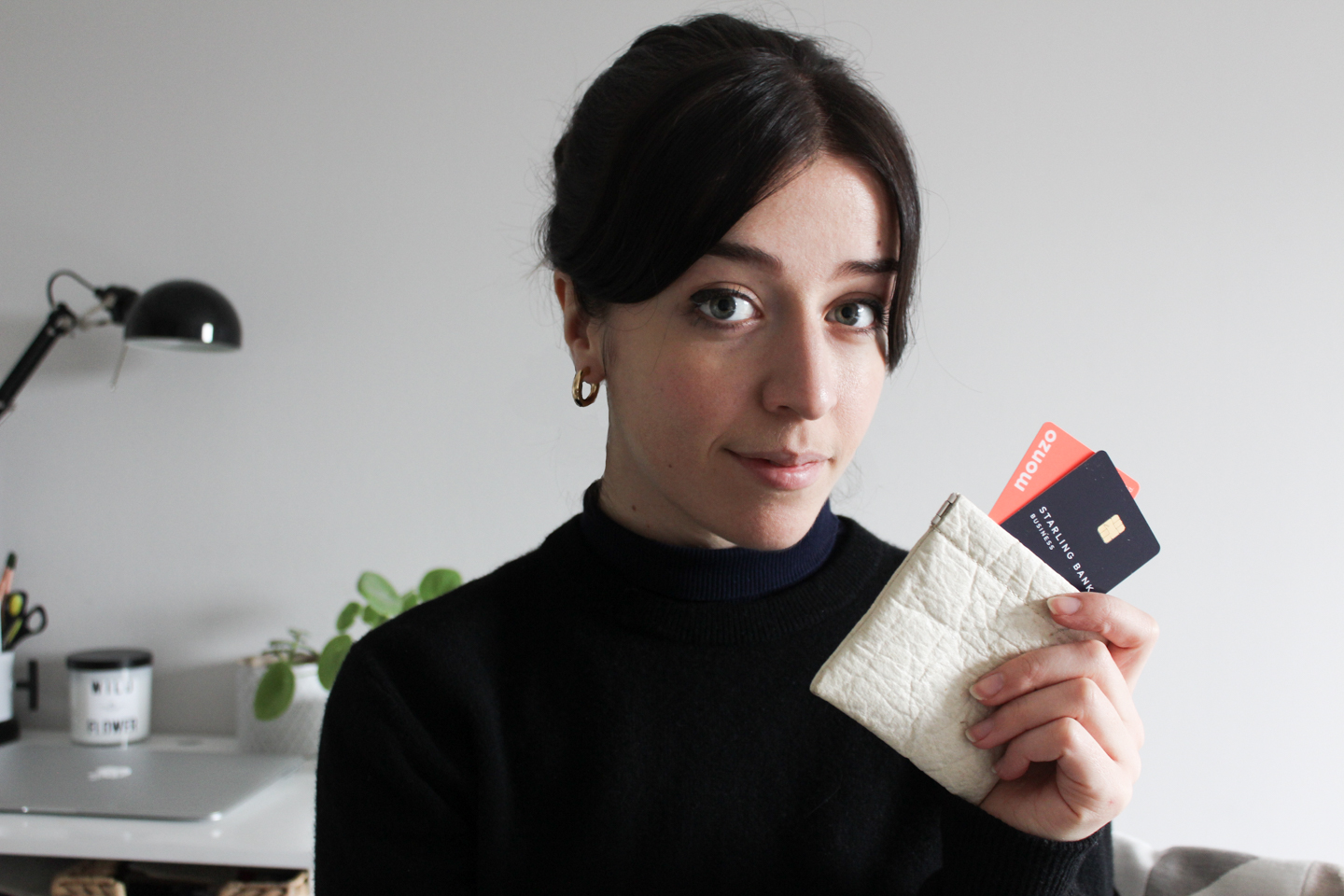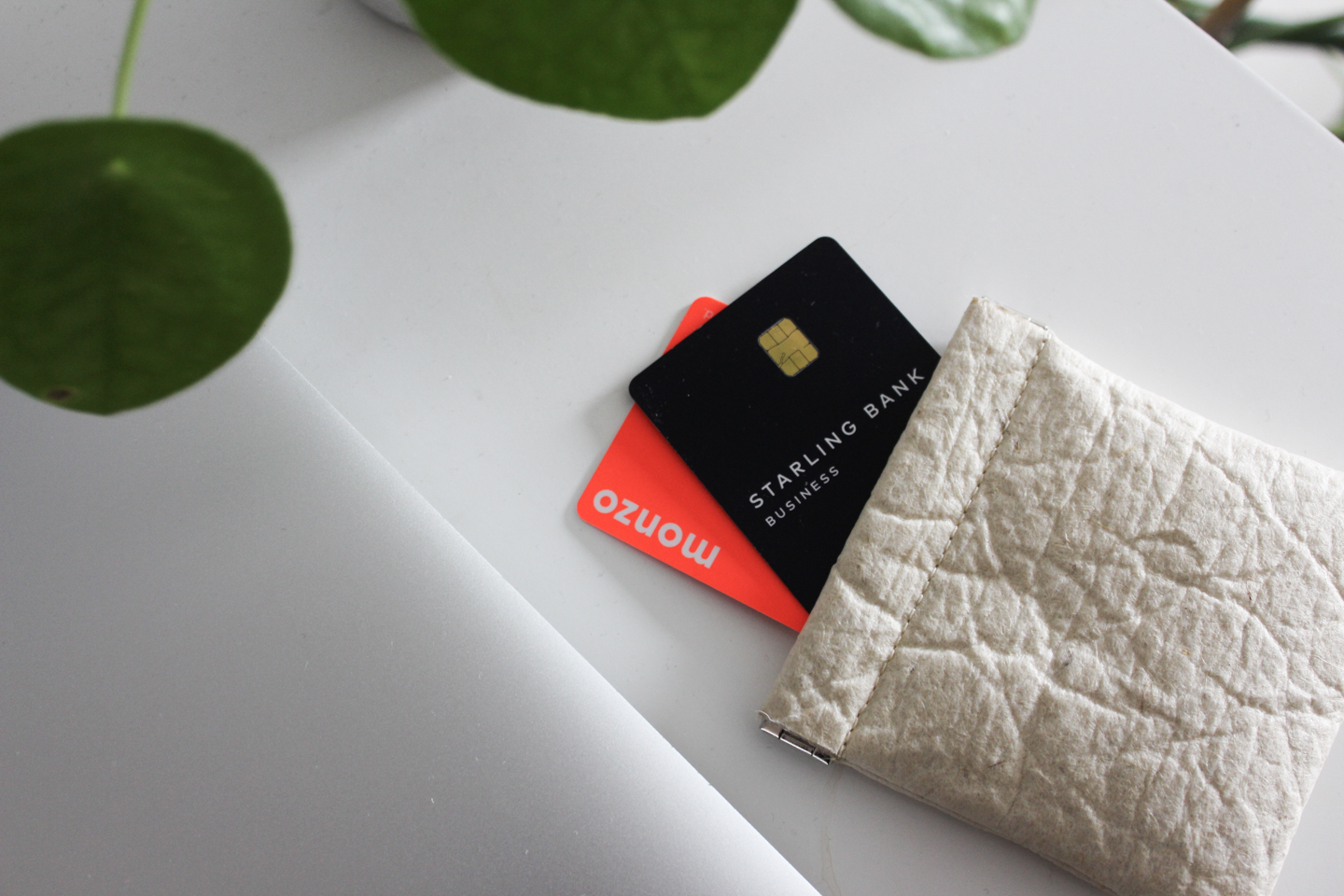
Did you know, you can be more sustainable by simply switching your bank? Yes, ethical banks do exist. It’s one of those things we all forget about – our money is still voting for things, even when it’s put away in a current account. And often, we feel tied to the banks we’ve been using for years too.
All of this is done on purpose. And equally, how our money is used when it’s held by our banks is often hidden from view. So, I decided to do a little more research into the ethics of our banks, and recommend a few more sustainable options for you to choose from…
This piece is focused on banks that provide current accounts to the general public. Investment banks, banks providing premium banking services, and other financial providers have not been included.
Please note: I am not a financial expert or advisor, nor am I affiliated with any banks or financial services. This does not constitute financial advice.
What Do Banks Do With Our Money?
When I was a child, I used to think banks had little vaults where they kept all the money we deposited. I would imagine it a bit like Gringotts in Harry Potter – we all have separate rooms where they keep our pennies and pounds. Shockingly, this isn’t actually the case!
All the money we put into our bank accounts and savings accounts is invested into different things. And while we’re welcome to withdraw that money at any time, when it sits with our banks, it’s funding these things without our direct approval.
Many banks use our savings to invest in low-risk activities, so they can make money and find ways to pay you interest. These activities often include oil drilling, fracking, arms and military. It’s not something they disclose when you open your account, but it’s something you’re potentially funding even if you don’t personally approve of it.
How To Choose An Ethical Bank Account
When it comes to choosing better, more ethical banks to put your money into, I think Ethical Consumer magazine‘s advice is perfect. To choose an ethical bank account, follow these two simple steps:
- Check what your bank invests in
- Check that your bank pays its taxes
In previous years, I would have recommended contacting your bank directly to find out the answers to the below questions. However, I’m pleased to say I’ve since discovered Bank Green, a search engine showing if your bank is funding ‘climate chaos’. Simply enter your country and bank to find out!
On the Bank Track website, you can also keep track of a number of big banks and their dealings, good and dodgy alike.
Questions To Ask Your Bank
Extinction Rebellion’s campaign to stop funding the climate crisis goes further, inviting you to speak directly with your banker, and use their letter templates to get clear information before continuing with the bank you use, or switching to somewhere better.
Personally, I spent a few days researching ethical banks (and not-so-ethical banks) for this piece, and also reached out directly to all of the ‘best’ banks in the list below. These are the questions I asked, which you may wish to use when speaking with your bank:
- Do you invest in fossil fuels, coal power, mining, arctic drilling, tar sands or fracking?
- Do you invest in arms or military activities?
- Do you have any sustainable and responsible banking practices?
- Do you recognise there is a climate emergency, and if so, what actions are you taking?
A Note On Building Societies
You may be wondering where building societies fall into all of this. Unlike banks, building societies are ‘owned’ by their customers, and have a reputation of offering lower charges, better interest rates, and a more personalised service. A lot of this isn’t the case any more, but there is one thing that rings true: they don’t have shareholders.
This means building societies aren’t under commercial pressure to make big returns on investments made by shareholders, and they therefore experience less pressure to invest in dirty industries. Customers have a say as to what building societies invest in, and these are often community-focused activities (according to the Building Society Association).
There are 43 building societies in the UK, often tied to locations (such as Coventry, Leeds, Skipton, Yorkshire, or Nationwide) or a cause (such as Ecology Building Society, or UK Green Building Society).
Just be aware if your building society decides to re-structure. Many have converted into banks, such as Bradford & Bingley to Halifax, and Alliance & Leicester to Woolwich.
6 Of The Best UK Banks Based On Ethics

Ok, so onto the list of the best ethical banks in the UK! I’m delighted to say I received a very positive response from Triodos Bank when researching their practices. As such, I’ve put them as top of the list, for their transparency and customer service to boot.
For the rest of the list, my information is taken from their sites and third-party research. All are protected by the Financial Services Compensation Scheme (FSCS) except Revolut.
1. Triodos Bank: Sustainable bank started in 1980 that only uses money in ways that benefit people and the environment. They provide current accounts (with a £3/month charge) as well as savings accounts, investment management, business accounts, and charity banking.
They do not invest in fossil fuels, coal power, mining, arctic drilling, tar sands fracking, arms, or military activities, and have outlined their minimum standards for lending criteria plainly on their website.
Triodos is also the only bank on this list to recognise the climate emergency, with CEO Bevis Watts signing an open letter to The Times in support of Extinction Rebellion last year.
2. Monzo: App-based bank that provides personal current accounts and newly-introduced overdrafts. Often used to limit spending, and provides good conversion rates when travelling abroad.
3. Co-operative Bank: Banking arm of Co-operative, that does not invest in arms and military equipment.
4. Charity Bank: Charitable bank that provides personal savings accounts and business loans. They use the money saved to provide loans exclusively to charities, social enterprises and organisations with charitable purposes.
5. Atom Bank: App-based bank that provides personal savings accounts, mortgages, and business loans.
6. Revolut: App-based bank that also focuses on low-cost currency conversions. Revolut is the only bank on this list that is not protected by FSCS, so make sure you’re ok with this before switching to them.
Formerly Listed: Starling Bank: App-based bank that started with business accounts and has recently rolled out current accounts too. The Starling Bank team confirmed to me that they do not invest in fossil fuels, coal power, energy companies, mining, arctic drilling, tar sands, fracking, arms, or military activities. Instead, they invest in “government securities and other high quality liquid assets. [They] do not take investment from energy companies.” They also do not lend to companies involved in extracting fossil fuels.
As a paperless, branchless bank hosted in the cloud, they also have a smaller carbon footprint than most. They were transparent enough to also detail their hosting provider – Amazon Web Services (AWS) Dublin – which is carbon neutral.
Update 08/21: Starling Bank has recently accepted funding from the Qatar Investment Authority (QIA) which is heavily linked to fossil fuels. It goes against the above promises and other public statements declaring their opposition to fossil fuels, and for this reason they have been moved off the above list.
14 Of The Worst UK Banks Based On Ethics
And if you’d like the low-down on which banks do not qualify as ethical banks, here’s the list:
Bank of Scotland: Part of Lloyds, see below.
Barclays: Biggest investor in fossil fuels, fracking, and coal power out of all European banks, and also invests in arms and military equipment.
First Direct: Part of HSBC, see below.
Halifax: Part of Lloyds, see below.
HSBC: Second-biggest investor in fossil fuels out of all European banks, and also invests in fracking, arms, and military equipment. They are highly likely to use tax avoidance schemes.
Lloyds Bank: Invests in arms and military equipment, and is highly likely to use tax avoidance schemes.
M&S Bank: Part of HSBC, see above.
NatWest: Part of RBS, see below.
RBS: Invests in arms and military equipment, and previously invested heavily in fossil fuels but has reduced this significantly since 2016.
Santander: Invests in fossil fuels, and is highly likely to use tax avoidance schemes.
Tesco Bank: Highly likely to use tax avoidance schemes.
TSB: Highly likely to use tax avoidance schemes.
Ulster Bank: Part of RBS, see above.
Virgin Money: Highly likely to use tax avoidance schemes.
How To Switch To An Ethical Bank
If you’re looking to change who you bank with, I recommend using the UK Government’s Current Account Switch Service. This is a free service that guarantees you will not be charged for switching to another provider. You can make a switch even if you’re in your overdraft.
Sadly, Charity Bank, Atom Bank, and Revolut are yet to be part of this service, but the other top banks listed can be easily switched to without having to go through your own bank’s T&C’s and cleverly-designed mazes that are designed to keep you a life-long customer!
(P.S. Can’t switch your bank account right away? Why not try focusing on other impactful activities, and reducing and offsetting the carbon emissions associated with them).
What About The Bank of England?
In addition to our usual high street banks and building societies, you may be wondering about the ethics of the Bank of England (BoE). The BoE is the central bank of the United Kingdom, and its banking model is followed by most modern central banks around the world.
While the BoE doesn’t provide consumer banking services, it’s still worth mentioning due to its influence on modern banks and insurers, and its responsibility for regulation and supervision of the banking and insurance industries in the UK.
In 2020, the BoE published the Climate-Related Financial Disclosure report, recognising:
“Climate change creates financial risks that will affect us all. These risks arise through two primary channels:
- physical effects of climate change; and
- impact of changes associated with the transition to a carbon-neutral economy.“
Within the report, they highlight the need to understand climate change further, and that banks and insurers will need to make inevitable changes away from investments in fossil fuel producers, energy utilities, properties in flood-risk zones, emission-intensive sectors, and high-carbon technologies (even if the degree and speed of these changes is vague.)
The BoE is part of the Network for Greening the Financial System and the Sustainable Insurance Forum, both of which encourage the sharing of this knowledge to a worldwide membership of banks and insurers.
Within the BoE, they have also set the goal of “reducing their carbon footprint consistent with temperature warming of 1.5°C above pre-industrial levels” by 2030, which is commendable commitment that’s actually a lot better than steps being taken many big businesses or even the UK Government, despite declaring climate emergency in 2019.
This too is noted in their report: “the pace of change in the United Kingdom will need to increase to meet forward-looking national and international climate targets.” As the UK’s central bank, I hope they can make that change known and acted upon as soon as possible.
